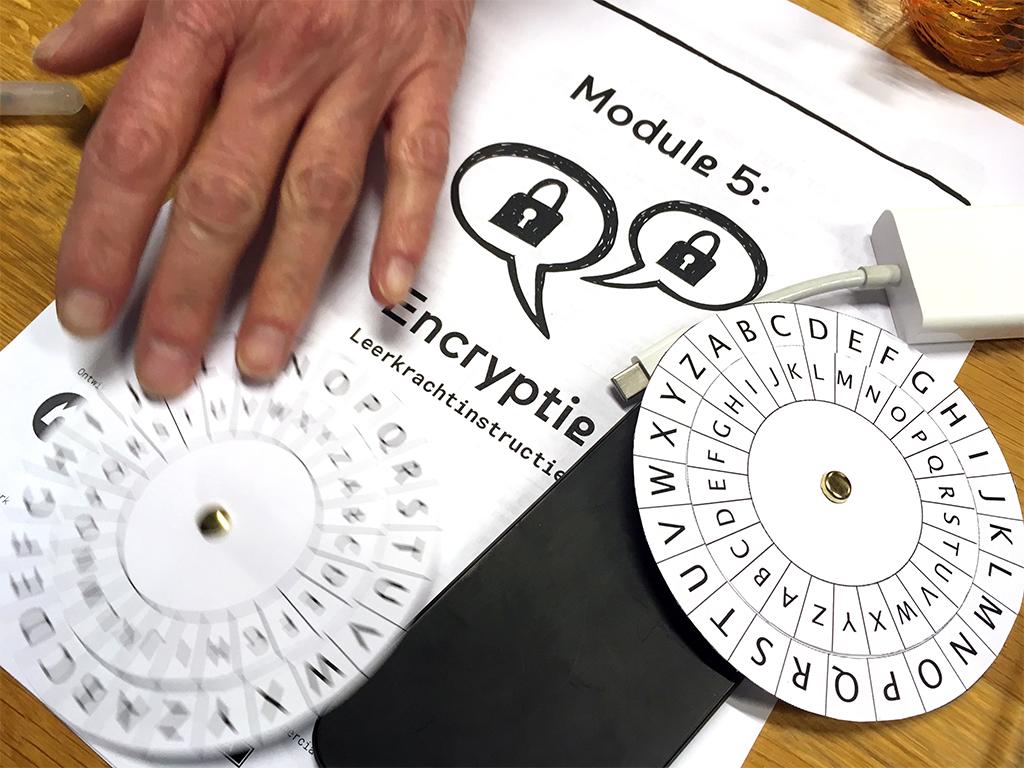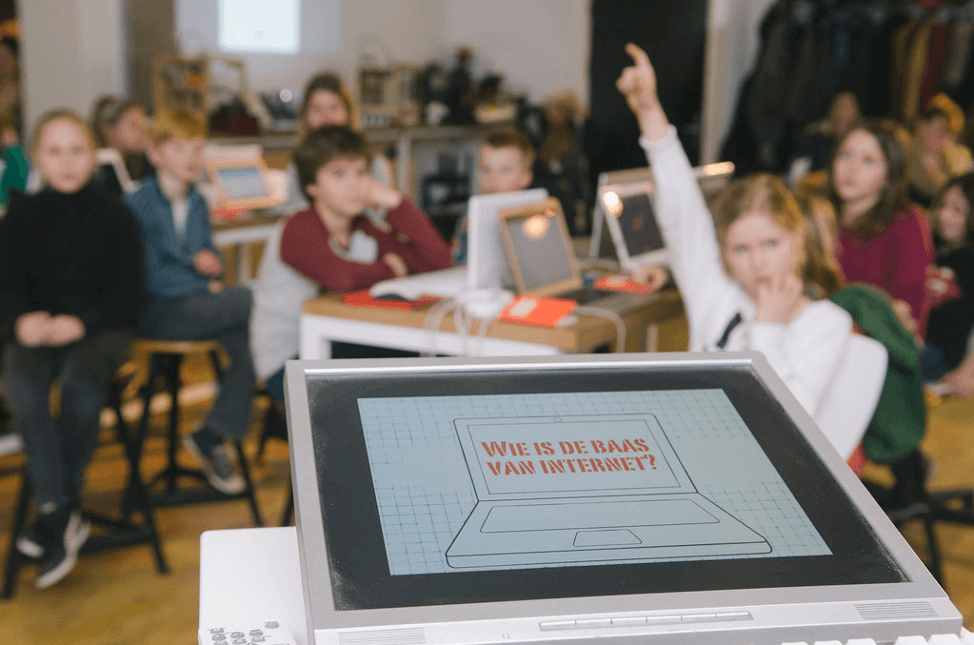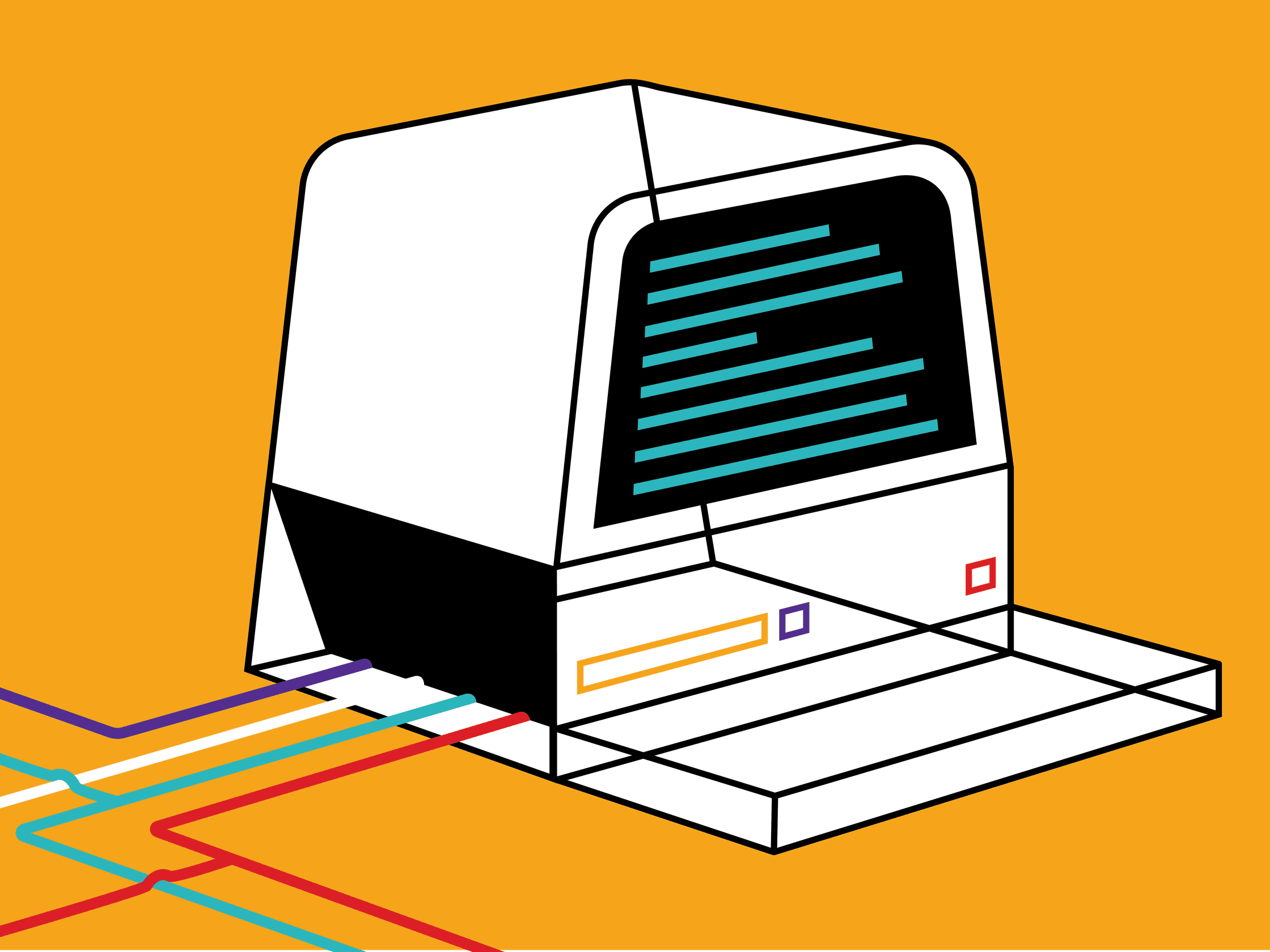In our project "Who is the Boss on The Internet" (aka Cryptokids) we have worked on educational material for primary and secondary schools. This has resulted in online available teaching materials to make pupils and teachers more aware about their decisions as internet users.
The teachers are the ones who have to offer this teaching material to the class. It is therefore important that they feel comfortable with the material. For this reason, our Creative Learning Lab offers free introductory sessions these months to explore the lesson briefs we offer. To follow is a report of the first session that took place on 13 December.
Understanding as a foundation
The participants enter the workshop. An impressive percentage of the group is made up of employees from libraries have also joined. We can also count on them for distribution of the lesson briefs. Robin van Westen introduces what the general approach was when creating the teaching material. ‘Children are taught a lot about media literacy with the emphasis on behaviour, and less about how the Internet actually works. We believe that understanding about how it works will lead to more conscious and better choices by internet users.’
The six lesson briefs on debaasopinternet.nl (in Dutch) are the result from this approach.
The physical Internet
In groups, we start with the teaching materials under supervision of Douwe-Sjoerd Boschman and Robin van Westen. On one table, participants tackle the lesson brief about the physical form of the internet. With publicly available online tools, they explore the cables that connect countries and continents. "I think this is something for the topography lesson," someone remarks.
When it has become more clear how the internet consists of actual physical connections, Douwe-Sjoerd asks: "And what happens when a website is blocked by the government? Who needs to do something to make this happen? A provider, a data centre, or someone else?"
With the insights from the session, the attendees go on to have an in-depth conversation.
Privacy
At the other table Robin guides the exercises from the lesson brief on privacy. People talk about connection via the internet and about what they want to share with others via applications such as WhatsApp. An ICT employee at the table responds on the subject of how to deal with mobile internet in the classroom. "I do not think it's good to ban cell phones from the classroom, you have to embrace it in order to make use of the opportunities that it offers! People dare to share things on the internet more easily. This in itself can be of value. So let us also talk about how we can best use this in education." Others nod their head in agreement.
After 30 minutes Robin closes the conversation with the words: "Use these lesson briefs to have these conversations with the class as well. When doing so we must acknowledge the digital world that the students perceive. Furthermore, me must emphasize and share that it is fine to make the choice to share information, but also that it is very human and OK if you decide to not share everything with everyone."
Lessons for everyone online
The best part in all this is that all materials are distributed free online at debaasopinternet.nl. We hope to also provide an English version in the future of the complete material (a sample is already available). Our challenge is now shifting from creating material, to further disseminating this material. Therefore, please refer all Dutch people you know to debaasopinternet.nl, so that as many children and teachers as possible can benefit from the lesson letters. All attendees of the workshop today indicated that they intend to start with all the lessons briefs as soon as they see possible.
Challenge for everyone
"Which of us is Sonja van Boelen?," another participant then suddenly asks. A woman on the corner of the table turns around. "I have been able to find the MAC address of your computer here because we are logged into the guest network operated by Waag."
This made it ever so clear that the challenge of using the Internet in a conscious way, applies not only to students and teachers, but also to you, me and many others.
"By the way, are these lessons given to parents as well?", a participant asks, "because online sharing of information about children, and sharing of images of children is also done by parents."
"Not yet, but fortunately the material is so written in such an understandable way that even adults can understand it," Robin says. After a second of self-critical contemplation, the group goes on to burst out in laughter.
The lesson briefs are the result of a comprehensive co-creation process with teachers and students at different schools. This was done by Waag in collaboration with Bits of Freedom and Netwerk Democratie. Financially, this project has been made possible by contributions from the SIDN fund and Fonds 21.
If you read this, and you also want to play a guiding role in translation and/or using these teaching briefs in English, then please contact us.


